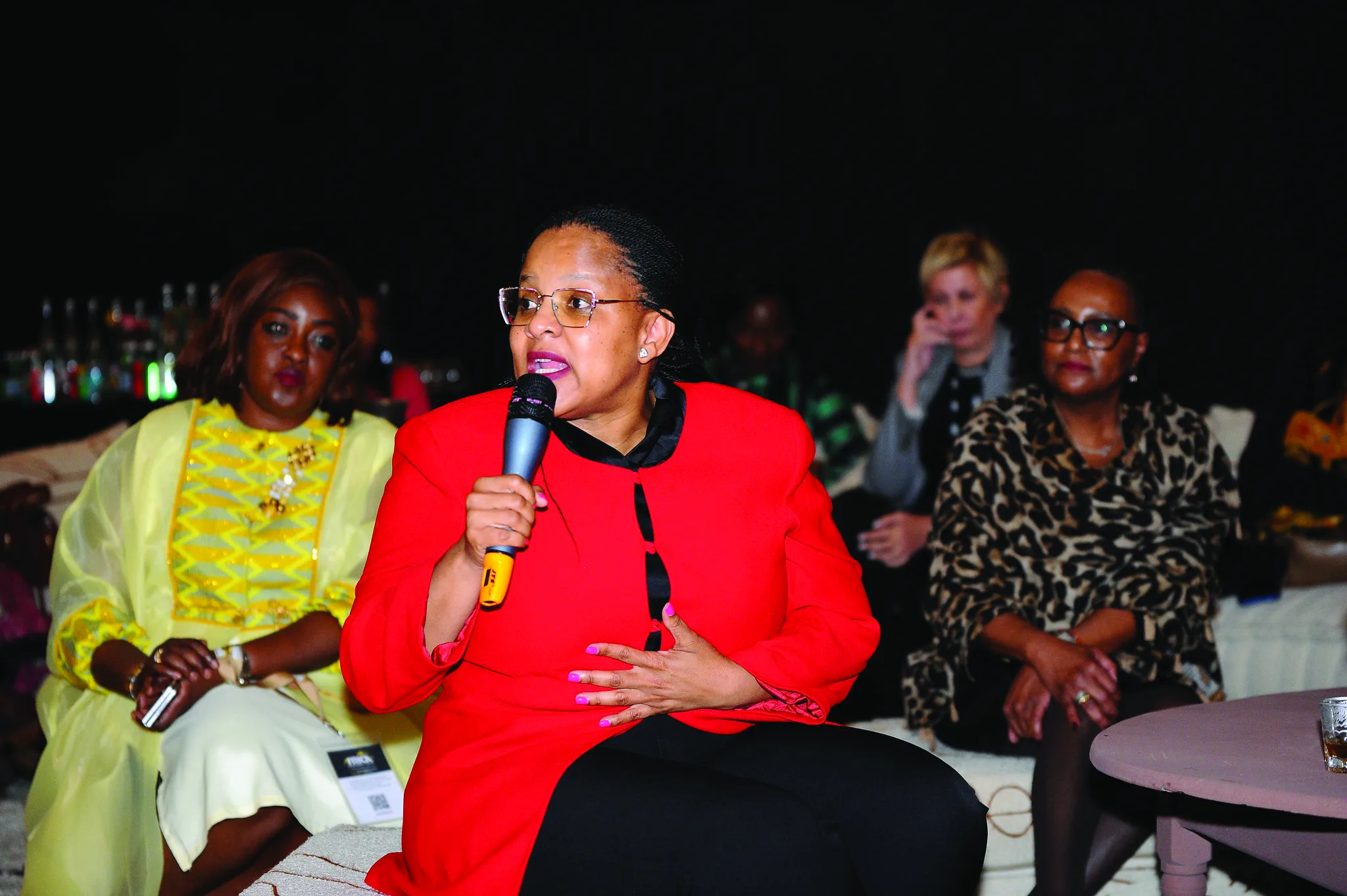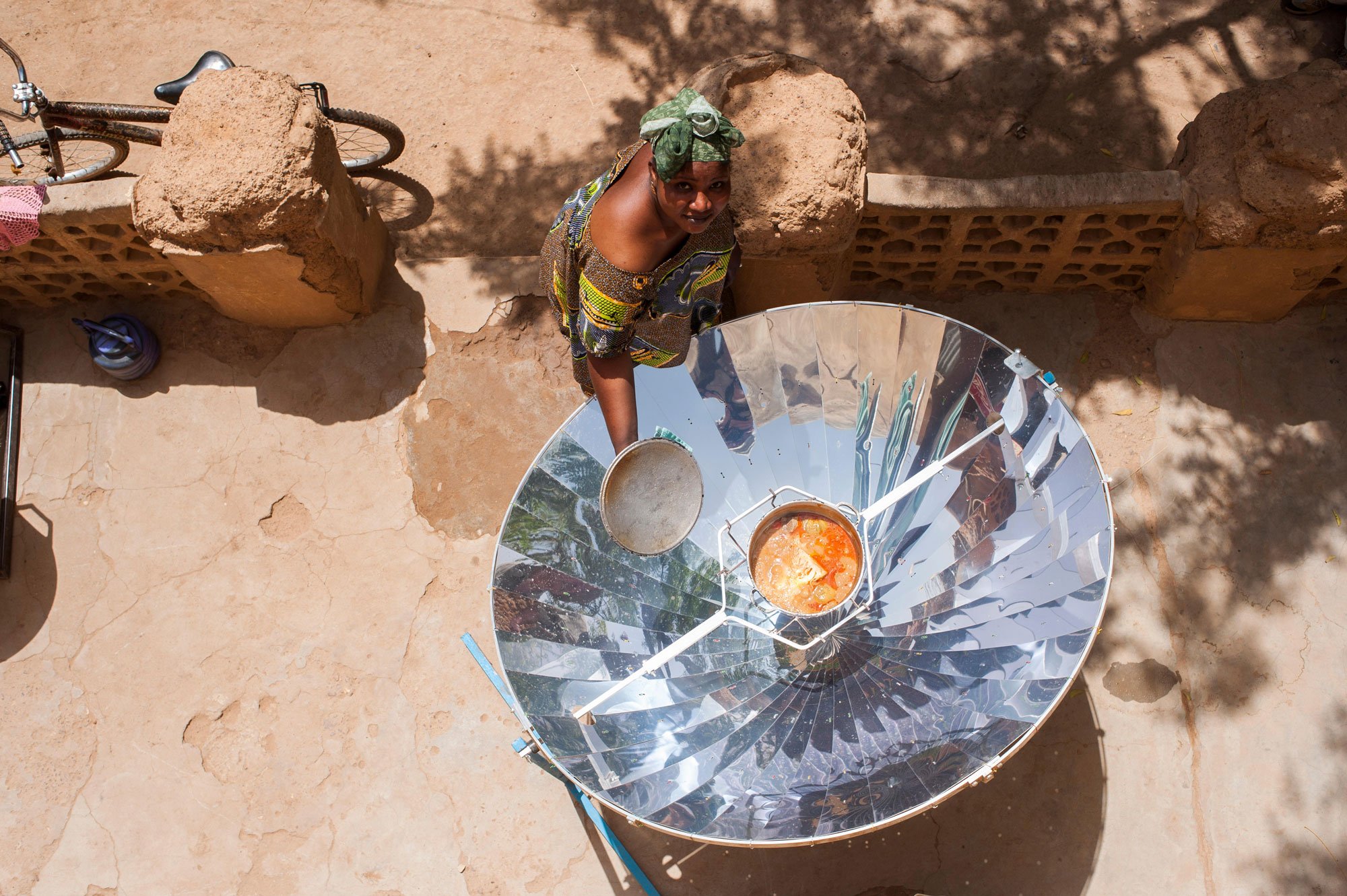
Women-led businesses are critical to the future of Africa and stakeholders have to come together to support them with both financial and non-financial resources, speakers at a panel discussion on women’s empowerment at the Africa Investment Forum (AIF) concluded. Women also need to be more confident in growing and owning their capabilities, while building deep and wide support networks to enhance the growth of their businesses.
These were some of the conclusions from a panel discussion titled “Women As Investment Champions: A Berber Experience”, which was held as part of the 2023 AIF in Morocco from 8-10 November. Panellists included Chinelo Anohu, senior director and head of the AIF; Mia Amor Mottley, prime minister of Barbados; Morocco’s Finance Minister Nadia Fettah; Bajabulile Swazi Tshabalala, senior vice president at the African Development Bank (AfDB); and Boitumelo Mosako, CEO of the Development Bank of Southern Africa (DBSA ).
Also on the panel were Ambari Daroueche, first lady of the Union of Comoros; and Reena Bhambi, founder of Private Tutors R Us, an education services provider.
According to the AfDB women account for more than 40% of small and medium sized enterprises in Africa – and yet they continue to face formidable obstacles in playing a role in the economy, key among these obstacles being access to finance.
A funding landscape skewed against women
The International Finance Corporation says that the funding landscape remains skewed, with African women entrepreneurs receiving less than 10% of available venture capital funding and a mere 5% of private equity investments.
While women-led businesses are growing in number and impact, a wide disparity in funding continues to persist, with recent estimates placing the gap at $42bn. Aside from entrepreneurs, women in employment also have to contend with the gender pay gap in wages and salaries.
Setting the tone for the discussions, the AIF’s Chinelo Anohu praised the ability of women to multitask and push themselves beyond boundaries, noting that the “ordinary woman is a phenomenal woman”. Addressing these challenges will further empower women to play much more impactful roles in the African economy, with positive ramifications for the entire continent.
Efforts must be made, she suggested, to seek out and assist women who need help which, she pointed out, was not always just financial assistance. This must be done even when women have not themselves asked for it.
She advised women entrepreneurs to ensure that their businesses are scalable. “You must make sure that the foundation at the start of your business supports the future that you aspire to. If we work towards that, I think it will be easier for things to happen.”
The need to be nimble
Prime Minister Mottley agreed that scale is essential to transformation, noting that Barbados, as a small country, is keenly aware of this fact and the need to be nimble. She said that even though there were challenges of institutional support for women, the first obstacle they faced was a lack of self-belief. She reminded women that they overcome obstacles daily and urged them to believe in themselves.
Mottley called for informal networks to support women in moments of doubt. “Doubts will come and difficult days will come but the difference with those who succeed is that they are prepared to be persistent,” she said.
To be able to correct the gender imbalance, women must come together and pool resources so they can deploy them strategically. The prime minister stressed that it will be impossible to achieve scale and transformation without this. “We need to look at one another, trust one another and find the vehicles through which collective investment can take place.”
Women should no longer have to explain
Morocco’s Finance Minister credited King Mohammed VI for the positive strides that women had made in Moroccan politics, business and civil society. She said women should no longer have to explain that they have the competence and expertise required for major roles – since that had already been established. The Minister urged women to bring their own unique perspectives and approach to management, rather than attempting to lead in the same way that men do. She also called for more networking among women.
“I think we have a lot of local and regional initiatives, which some might say are not coordinated but what is important is having a lot of platforms for networking and raising the voice of women all over the world.”
An opportunity to offer short-term funds
Bajabulile Swazi Tshabalala of the AfDB said the bank had many programmes to support women, including a $5bn initiative for women entrepreneurs. She noted, however, that these are structured as long-term funds, while a gap remains for short-term finance for women entrepreneurs that can assist them to grow.
She observed that while development banks typically do not have such programmes, there is an opportunity to innovate and create funding programmes to address these specific needs.
Tshabalala called on funds and development banks to consider this approach, noting that “often development banks are very good in coming up with products and ideas but not necessarily as good as we could be in listening and understanding really what people – particularly women entrepreneurs – want.”
She committed the bank to such an initiative and expressed the hope that by the next AIF, “we will be able to say that we now have a working capital fund for women entrepreneurs in Africa.”
The need for strong networks to boost women entrepreneurs
Boitumelo Mosako of the DBSA praised the South African government for its support for women, including through legislation. She recalled that her first hire as CEO was female, adding to a team that is 50% female at both the senior executive ranks and on the governing board.
She said the bank also has specific targets with regards to interventions for women-led businesses that it strives to meet. These go beyond investments to include suppliers, where it has quotas for women-led businesses.
As part of its gender mainstreaming programme to empower women, the bank also allocates specific funds for female entrepreneurs. “For us, women are at the centre of everything we do. There is no way we can build a prosperous Africa without involving women in everything we do.”
Mosako backed calls for strong networks to boost women entrepreneurs. “Let’s make sure that we enhance our participation in building and unlocking African supply chains.”
Women: speak up and demand your due
Ambari Daroueche said she had always campaigned vigorously for the preservation of women’s rights as well as their active participation in politics. Currently, the Union of the Comoros has women ministers of interior, society and health, while the vice president of the central bank is also a woman.
She urged women to speak up and demand their due, saying that it is not rude to do so. Women have long been active in critical sectors and it is time to highlight their participation and achievements.
Rejection strengthened her resolve
Reena Bhambi, founder of education services provider Private Tutors R Us, recounted how she had failed to get funding from a bank to start her business on account of being a woman, on the basis she may abandon her business to start a family.
Driven originally by her dissatisfaction with the quality of available tuition, which focused on grades rather than imparting knowledge, she said the rejection strengthened her resolve and she self-funded the business, which now includes a school in India with where more than 11,000 students have been taught.
Bhambi said she is now considering a similar project in Africa to bring quality education to children to break the poverty trap often caused by a lack of education.






Recent Comments